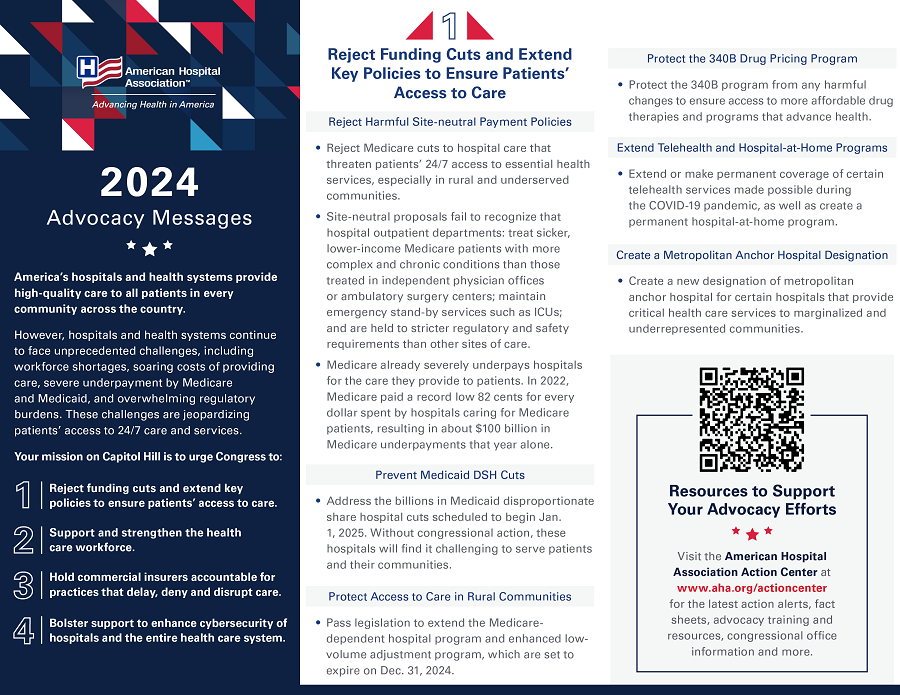
Letter/Comment

America’s hospitals and health systems provide high-quality care to all patients in every community across the country.
However, hospitals and health systems continue to face unprecedented challenges, including workforce shortages, soaring costs of providing care, severe underpayment by Medicare and Medicaid, and overwhelming regulatory burdens. These challenges are jeopardizing patients’ access to 24/7 care and services.
Your mission on Capitol Hill is to urge Congress to:
Visit the American Hospital Association Action Center at www.aha.org/actioncenter for the latest action alerts, fact sheets, advocacy training and resources, congressional office information and more.